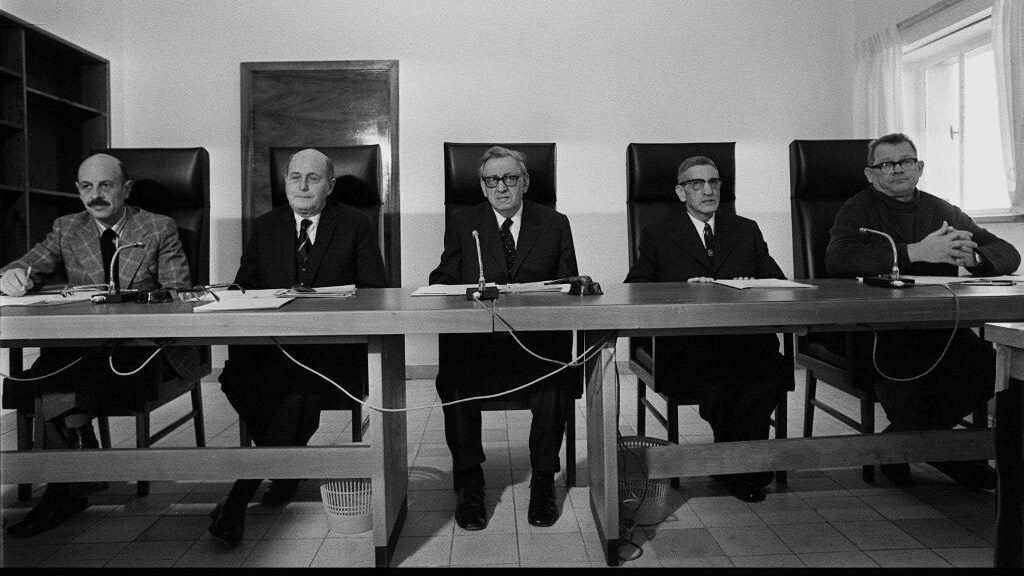What’s at Stake in the Controversy Over Israel’s October 7 Investigations?
Israeli families of victims, opposition leaders, and civil society groups have strongly opposed a government proposal to establish a political inquiry into the events surrounding Hamas’s deadly October 7, 2023 attack. The proposal, which surfaced last week, would block the formation of a state commission of inquiry, Israel’s most independent and powerful investigative body. Critics argue that this move undermines the need for accountability and transparency.
According to reports, Prime Minister Benjamin Netanyahu is supporting legislation to create a politically appointed investigative committee, sparking widespread criticism. Under the proposed plan, the committee would include representatives selected by the Knesset, Israel’s parliament, with some members drawn from the military and public sectors. Observers from bereaved families would also be included but without voting rights. The political probe would replace any other investigations into the attack and begin either a year after the law’s passage or 30 days after the Israel-Hamas war concludes.
Netanyahu has faced mounting public and political pressure to establish a state commission of inquiry, which operates independently of government influence. Such commissions are led by retired judges, appointed by the chief justice of Israel’s Supreme Court, and have the authority to subpoena witnesses and issue recommendations. Attorney-General Gali Baharav-Miara and Defense Minister Yoav Gallant are among those who have called for a state-led investigation.
Give the gift of hope
We practice what we preach:
accurate, fearless journalism. But we can't do it alone.
- On the ground in Gaza, Syria, Israel, Egypt, Pakistan, and more
- Our program trained more than 100 journalists
- Calling out fake news and reporting real facts
- On the ground in Gaza, Syria, Israel, Egypt, Pakistan, and more
- Our program trained more than 100 journalists
- Calling out fake news and reporting real facts
Join us.
Support The Media Line. Save democracy.


“This commission of inquiry should be objective; it should check all of us—the government, the army, and the security agencies,” Gallant said earlier this year.
Opposition leaders condemned the political inquiry proposal as an attempt to evade accountability. Former Defense Minister Avigdor Liberman labeled the move “an admission of guilt,” while opposition leader Yair Lapid declared on social media, “We will only vote for a National Committee of Inquiry.”
Groups representing bereaved families have also voiced strong objections. The October Council, which represents victims’ families, stated, “Only a state commission can uncover the truth and prevent the next October 7.” Another group, Their Voice, representing families of fallen Israeli Defense Forces (IDF) field observers, said they would not accept “attempts at a cover-up” and called for full transparency about their children’s deaths.
Adding to the pressure, the independent Civil Inquiry Committee, formed in July by victims’ families and civil society organizations, announced it would release a preliminary report on Tuesday. The committee has conducted interviews with over 120 individuals, including senior military, political, and security officials. Netanyahu has not cooperated with the committee. The findings are expected to outline systemic failures leading up to the attack.
Ofer Rosenbaum, head of the civilian probe, urged the government to reconsider its stance. “If responses are not received by the time the report is published, we will proceed with our conclusions,” he said.
Netanyahu, who rejected the findings of the state commission of inquiry into the Mount Meron disaster, which named him among the officials personally responsible after 45 Israelis were killed in a 2021 crowd crush, has described calls for a state inquiry as politically motivated distractions. Critics say the prime minister’s resistance undermines the public’s trust in Israel’s leadership during a time of national crisis.

